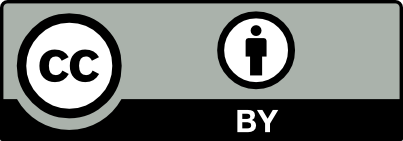Pharmacovigilance in tuberculosis: report of an experience in Brazil
DOI:
https://doi.org/10.3395/2317-269x.00270Keywords:
Pharmacovigilance, Tuberculosis, Antitubercular Agents, Adverse Drug Reaction Reporting SystemsAbstract
Tuberculosis (TB) treatment frequently causes adverse reactions, because on one hand, it employs at least four drugs and on the other hand, these drugs are often used in association with other drugs, such as antiretroviral and glucose-lowering drugs, that interact with antitubercular agents. The Brazilian National Tuberculosis Control Program and the National Health Surveillance Agency (ANVISA) developed a partnership to implement a pilot pharmacovigilance project to encourage the reporting of adverse reactions to antitubercular agents. Training followed by monitoring visits was conducted by three reference health services for TB treatment. Among the bottlenecks identified, we found limitations in access to the information system (NOTIVISA), slow Internet connection, poor adverse event reporting in medical records, lack of multidisciplinary integration and involvement of managers, and fragility of information flows. As a consequence, technical instructional materials were developed, the NOTIVISA form was improved and shortened, indicators for monitoring notifications were proposed, and information flows were reset. We conclude that the partnership was successful and suggest a similar strategy for other programs. Integration of health teams as well as development of simplified notification tools are challenges to be overcome if pharmacovigilance actions are to be sustainable in the country.Downloads
Downloads
Published
Issue
Section
License
Copyright (c) 2015 Health Surveillance under Debate: Society, Science & Technology (Vigilância Sanitária em Debate: Sociedade, Ciência & Tecnología) – “Visa em Debate”

This work is licensed under a Creative Commons Attribution-NonCommercial-NoDerivatives 4.0 International License.
COPYRIGHT ALLOWANCE The author (s) hereinafter designated as the ASSIGNOR hereby assign and transfer, free of charge, the ownership of the copyrights related to this ARTICLE to the Vigilância Sanitária em Debate: Sociedade, Ciência & Tecnologia (Health Surveillance under Debate: Society, Science & Technology) – Visa em Debate, represented by FUNDAÇÃO OSWALDO CRUZ, established at Av. Brasil, nº 4365, Manguinhos, Rio de Janeiro, RJ, Brazil, CEP 21045-900, under the conditions set out below: (a) The terms and conditions set forth in this Agreement shall apply to the following: 1. The ASSIGNOR declares that they s(he) is (are) the author (s) and owner (s) of the copyrighted property of the ARTICLE submitted. 2. The ASSIGNOR declares that the ARTICLE does not infringe the copyrights and / or other property rights of third parties, that the disclosure of images (if any) has been authorized and that they s(he) assume(s) full moral and / or property liability for its content, before third parties. 3. THE ASSIGNOR assigns and transfers all copyrights relating to the ARTICLE to the ASSIGNEE, especially the rights of editing, publication, translation into another language and reproduction by any process or technique. The ASSIGNEE becomes the exclusive owner of the rights related to the ARTICLE, and any reproduction, totally or partially, is prohibited in any other means of publicity, printed or electronic, without prior written authorization from the ASSIGNEE. 4. The assignment is free and, therefore, there will be no remuneration for the use of the ARTICLE by the ASSIGNEE.







